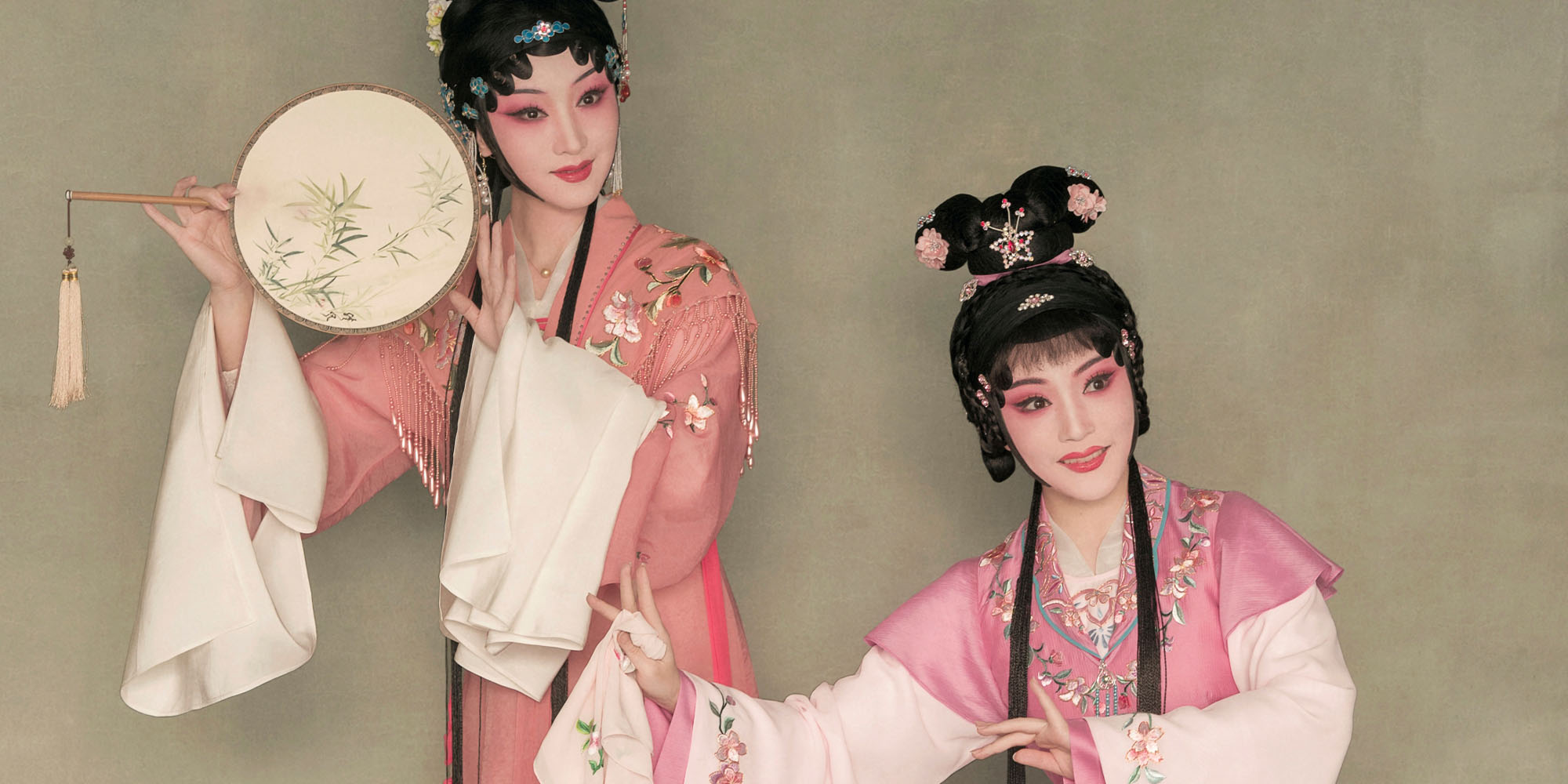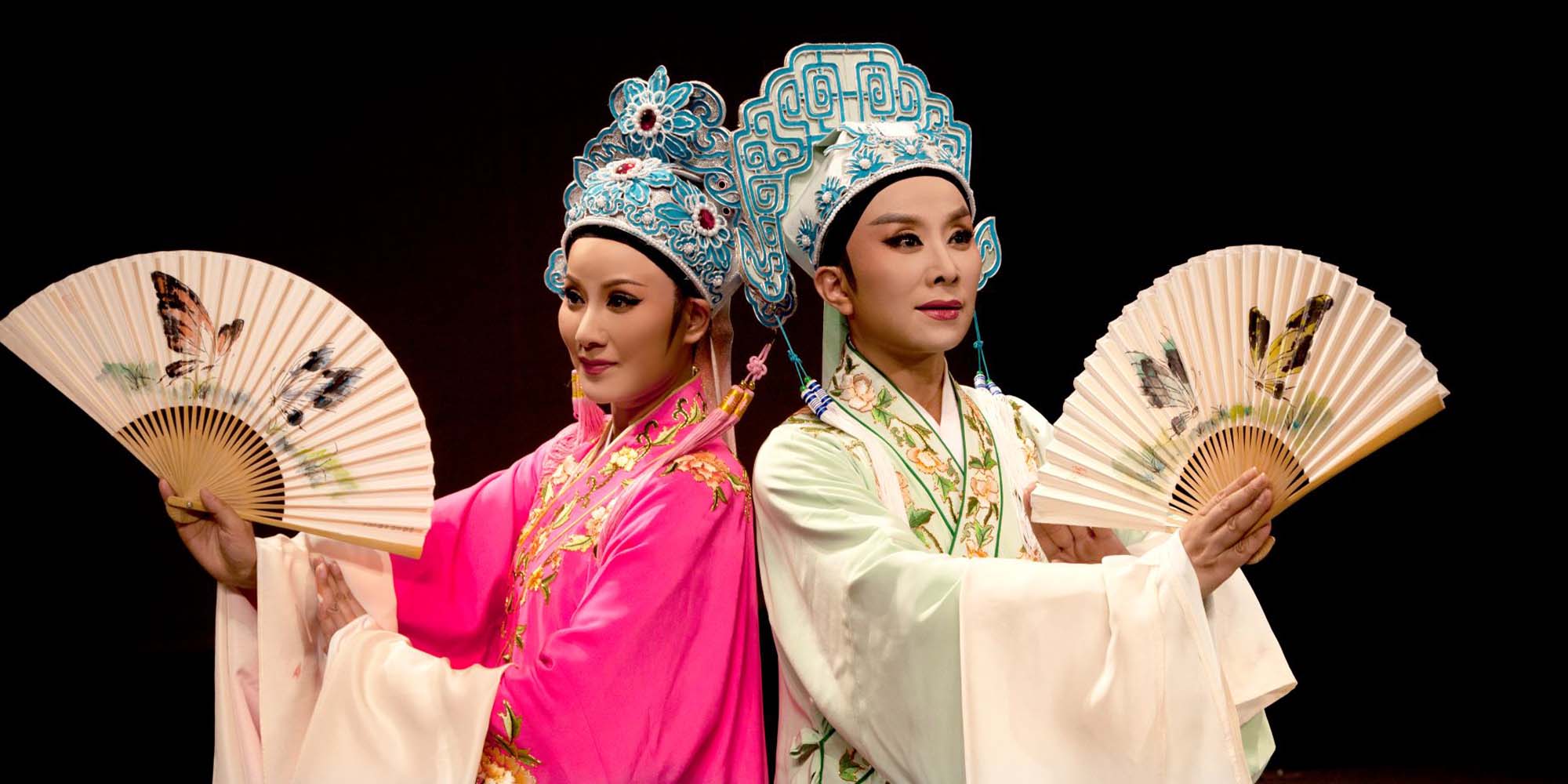CALENDAR
SA 02.
Aug
2025
7:00 PM
to
21:00
Interval
Opera
| Concert | Play | Adults
Concert | Play | Adults
Kunqu opera
It is regarded as the “mother of all theatre arts” in China. For over 600 years, it has had a profound influence on the aesthetics of Chinese theatre, with its finely polished melodies (Shuimo Qiang) and its strict, elegant playing style. The Contemporary Kunqu Opera Theatre from Kunshan, the birthplace of Kunqu, is devoted to the scholarly preservation and transmission of this classical art form. The performers adhere rigorously to the traditional laws of singing, reciting, acting and movement, with every gesture and sound deeply rooted in China’s historical culture and aesthetics. Of particular note is the close collaboration between the flute and drum masters, whose artistry – embodying the principle that “one flute leads the entire performance” – guides the dramaturgical flow of the entire production. The ancient scales (Gong, Shang, Jue, Zhi, Yu) weave seamlessly into the action on stage, infusing the Kunqu opera with its unmistakable soul.
Content
“The Western Chamber” (Xixiang Ji) is based on one of the most famous works of classical Chinese literature. It tells the tender and passionate love story between the aristocratic young woman Cui Yingying and the scholar Zhang Gong. Their yearning to be together, despite the social obstacles they face, reflects the timeless longing for love, freedom and personal happiness.
Famous scenes such as “Poem over the Wall” and “Incense under the Moon” combine the romantic poetry of Chinese high culture with the aesthetic sophistication of Kunqu opera.
Viewers experience a world full of delicacy, beauty and grace that has lost none of its fascination to this day. Particularly striking are the finely nuanced movement techniques that make every emotion of the characters palpable. The character comes to life in every smile, every hand gesture, every flicker of the eye. The portrayal of Hongniang, the clever and playful maid, is especially captivating, with her lively and charming presence standing out as a true highlight of the production. “The Story of the Western Chamber” takes the audience on a journey through time into the world of ancient Chinese love dramas, combined with the noble art of Kunqu – an unforgettable experience of elegance and depth.
Presented by: China Opera Research Society
SU 03.
Aug
2025
3:00 PM
to
17:00
Interval
Opera
| Concert | Play | Adults
Concert | Play | Adults
Kunqu opera
It is regarded as the “mother of all theatre arts” in China. For over 600 years, it has had a profound influence on the aesthetics of Chinese theatre, with its finely polished melodies (Shuimo Qiang) and its strict, elegant playing style. The Contemporary Kunqu Opera Theatre from Kunshan, the birthplace of Kunqu, is devoted to the scholarly preservation and transmission of this classical art form. The performers adhere rigorously to the traditional laws of singing, reciting, acting and movement, with every gesture and sound deeply rooted in China’s historical culture and aesthetics. Of particular note is the close collaboration between the flute and drum masters, whose artistry – embodying the principle that “one flute leads the entire performance” – guides the dramaturgical flow of the entire production. The ancient scales (Gong, Shang, Jue, Zhi, Yu) weave seamlessly into the action on stage, infusing the Kunqu opera with its unmistakable soul.
Content
“The Western Chamber” (Xixiang Ji) is based on one of the most famous works of classical Chinese literature. It tells the tender and passionate love story between the aristocratic young woman Cui Yingying and the scholar Zhang Gong. Their yearning to be together, despite the social obstacles they face, reflects the timeless longing for love, freedom and personal happiness.
Famous scenes such as “Poem over the Wall” and “Incense under the Moon” combine the romantic poetry of Chinese high culture with the aesthetic sophistication of Kunqu opera.
Viewers experience a world full of delicacy, beauty and grace that has lost none of its fascination to this day. Particularly striking are the finely nuanced movement techniques that make every emotion of the characters palpable. The character comes to life in every smile, every hand gesture, every flicker of the eye. The portrayal of Hongniang, the clever and playful maid, is especially captivating, with her lively and charming presence standing out as a true highlight of the production. “The Story of the Western Chamber” takes the audience on a journey through time into the world of ancient Chinese love dramas, combined with the noble art of Kunqu – an unforgettable experience of elegance and depth.
Presented by: China Opera Research Society
SA 23.
Aug
2025
7:00 PM
to
22:00
Interval
Opera
| Concert | Play | Adults
Concert | Play | Adults
Yue opera
Yei opera is celebrated for its lyrical and graceful singing style, often highlighting romantic stories of scholars and beautiful women. Over its century-long history, it has evolved into more than ten distinct styles, each distinguished by its unique vocal and performance techniques. The Shaoxing Xiaobaihua Yue Opera Ensemble captivates with its rare fusion of literary and martial performance. The artists skilfully master both the refined, melodic style of the Yin school, used to portray scholarly characters, and the vigorous, heroic songs of the Fan school, which bring to life dynamic figures such as warriors and heroes.
Content
The performance Liang Shanbo and Zhu Yingtai is based on one of the most famous and oldest Chinese folk tales, which has been passed down for more than 1700 years. This story is often regarded as the Chinese equivalent of Romeo and Juliet, recounting the tragic love between the scholar Liang Shanbo and the young woman Zhu Yingtai, who struggle against societal constraints. As a classic of Yue opera, this work encapsulates the essence of Chinese theatrical art.
In the scene Brotherhood on the Grass Bridge Bank, the protagonists express their emotions through the symbolic use of fans. In Eighteen Farewells, poetic songs poignantly convey the sorrow of an impending separation. Meanwhile, in Transformation into Butterflies, long water sleeves symbolise the immortal love between the two characters, brought to life in a graceful dance. Through the seamless blend of concrete and symbolic representations, the opera merges the real highs and lows of human emotion with the imaginative world of Chinese theatre. Liang Shanbo and Zhu Yingtai embodies the deep romantic longing and unwavering devotion to love that is central to Chinese culture, making their story one of the most enduring and poignant love tales in the world today.
Presented by: China Opera Research Society
SU 24.
Aug
2025
3:00 PM
to
17:00
Interval
Opera
| Concert | Play | Adults
Concert | Play | Adults
Yue opera
Yei opera is celebrated for its lyrical and graceful singing style, often highlighting romantic stories of scholars and beautiful women. Over its century-long history, it has evolved into more than ten distinct styles, each distinguished by its unique vocal and performance techniques. The Shaoxing Xiaobaihua Yue Opera Ensemble captivates with its rare fusion of literary and martial performance. The artists skilfully master both the refined, melodic style of the Yin school, used to portray scholarly characters, and the vigorous, heroic songs of the Fan school, which bring to life dynamic figures such as warriors and heroes.
Content
The performance Liang Shanbo and Zhu Yingtai is based on one of the most famous and oldest Chinese folk tales, which has been passed down for more than 1700 years. This story is often regarded as the Chinese equivalent of Romeo and Juliet, recounting the tragic love between the scholar Liang Shanbo and the young woman Zhu Yingtai, who struggle against societal constraints. As a classic of Yue opera, this work encapsulates the essence of Chinese theatrical art.
In the scene Brotherhood on the Grass Bridge Bank, the protagonists express their emotions through the symbolic use of fans. In Eighteen Farewells, poetic songs poignantly convey the sorrow of an impending separation. Meanwhile, in Transformation into Butterflies, long water sleeves symbolise the immortal love between the two characters, brought to life in a graceful dance. Through the seamless blend of concrete and symbolic representations, the opera merges the real highs and lows of human emotion with the imaginative world of Chinese theatre. Liang Shanbo and Zhu Yingtai embodies the deep romantic longing and unwavering devotion to love that is central to Chinese culture, making their story one of the most enduring and poignant love tales in the world today.
Presented by: China Opera Research Society
Don't miss a thing
Subscribe to our newsletter now.
We treat your data carefully.
The privacy policy of the Vienna Boys' Choir applies
The privacy policy of the Vienna Boys' Choir applies
Calendar
Watch now




